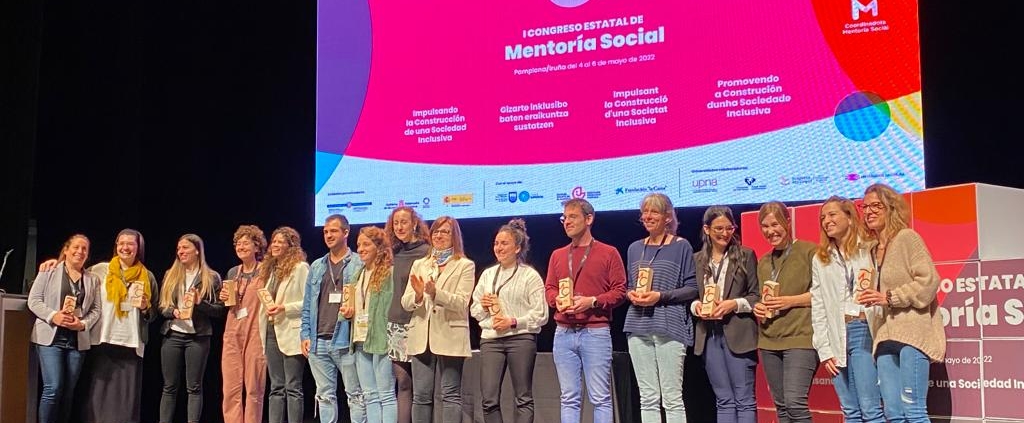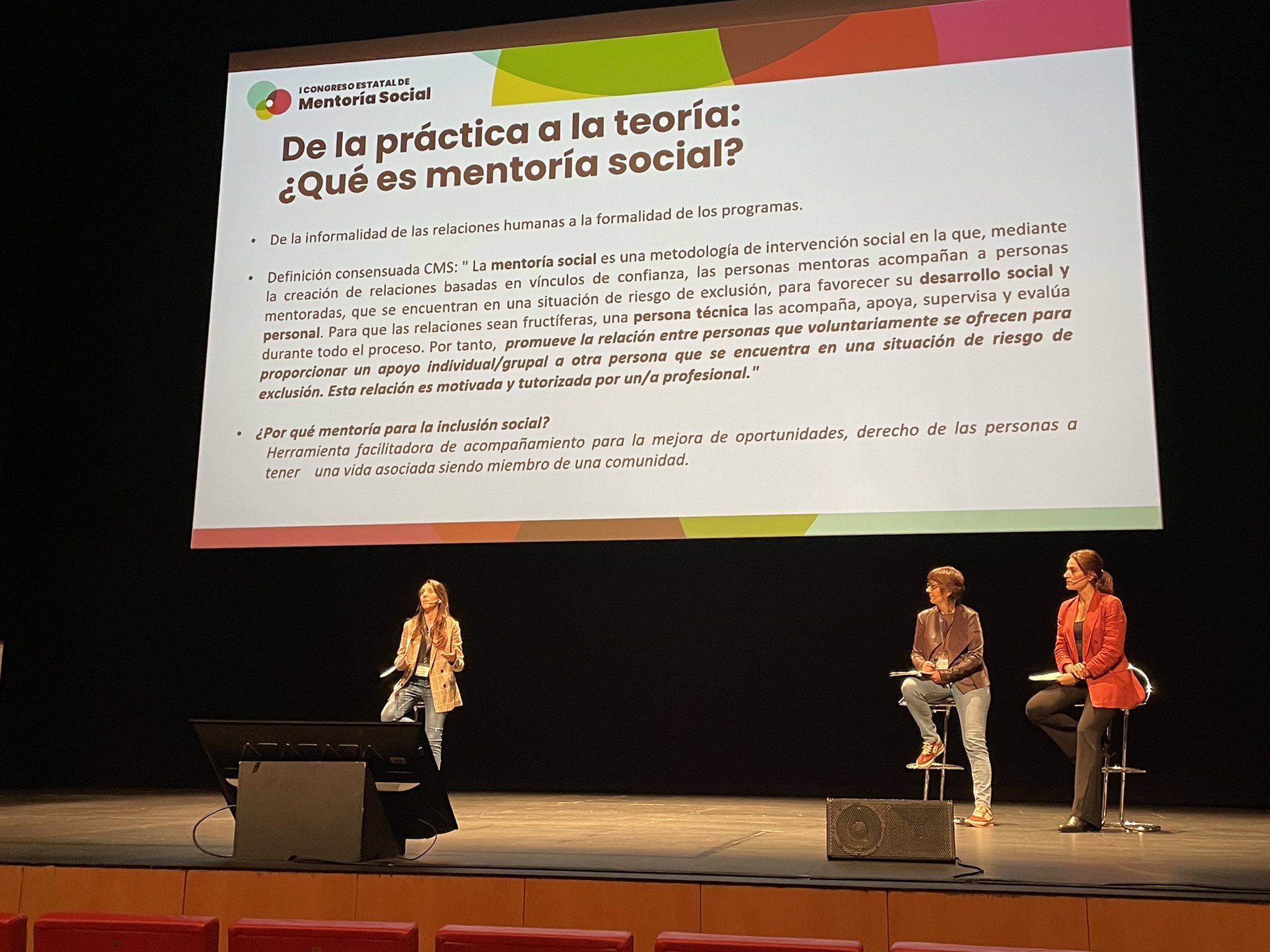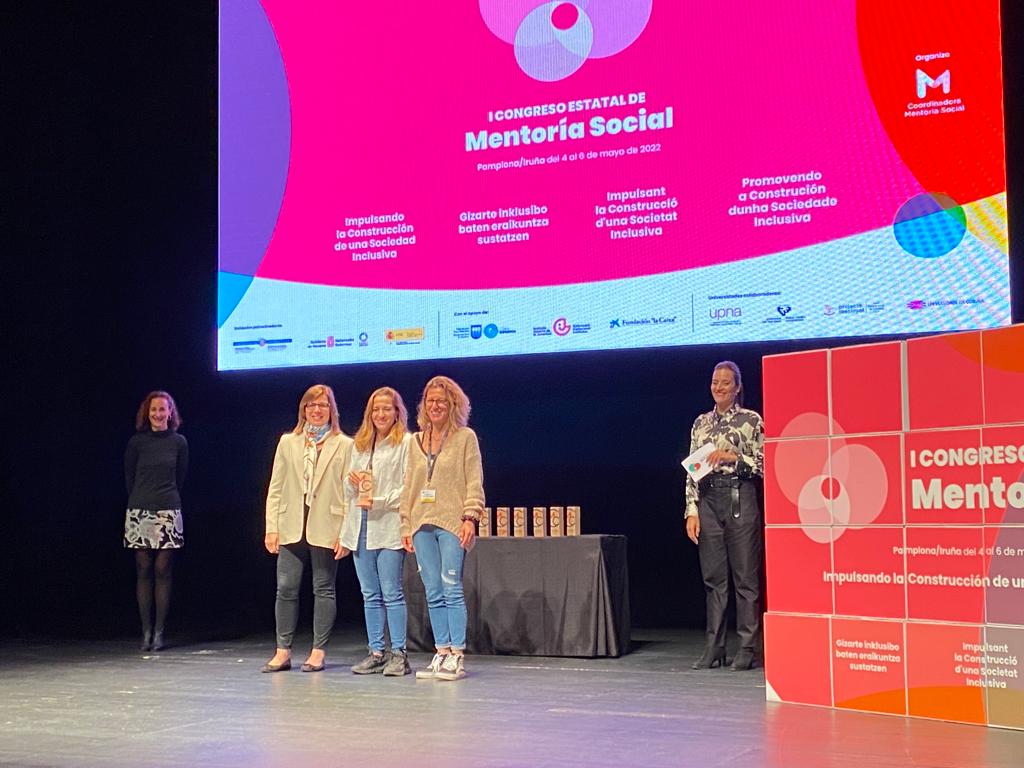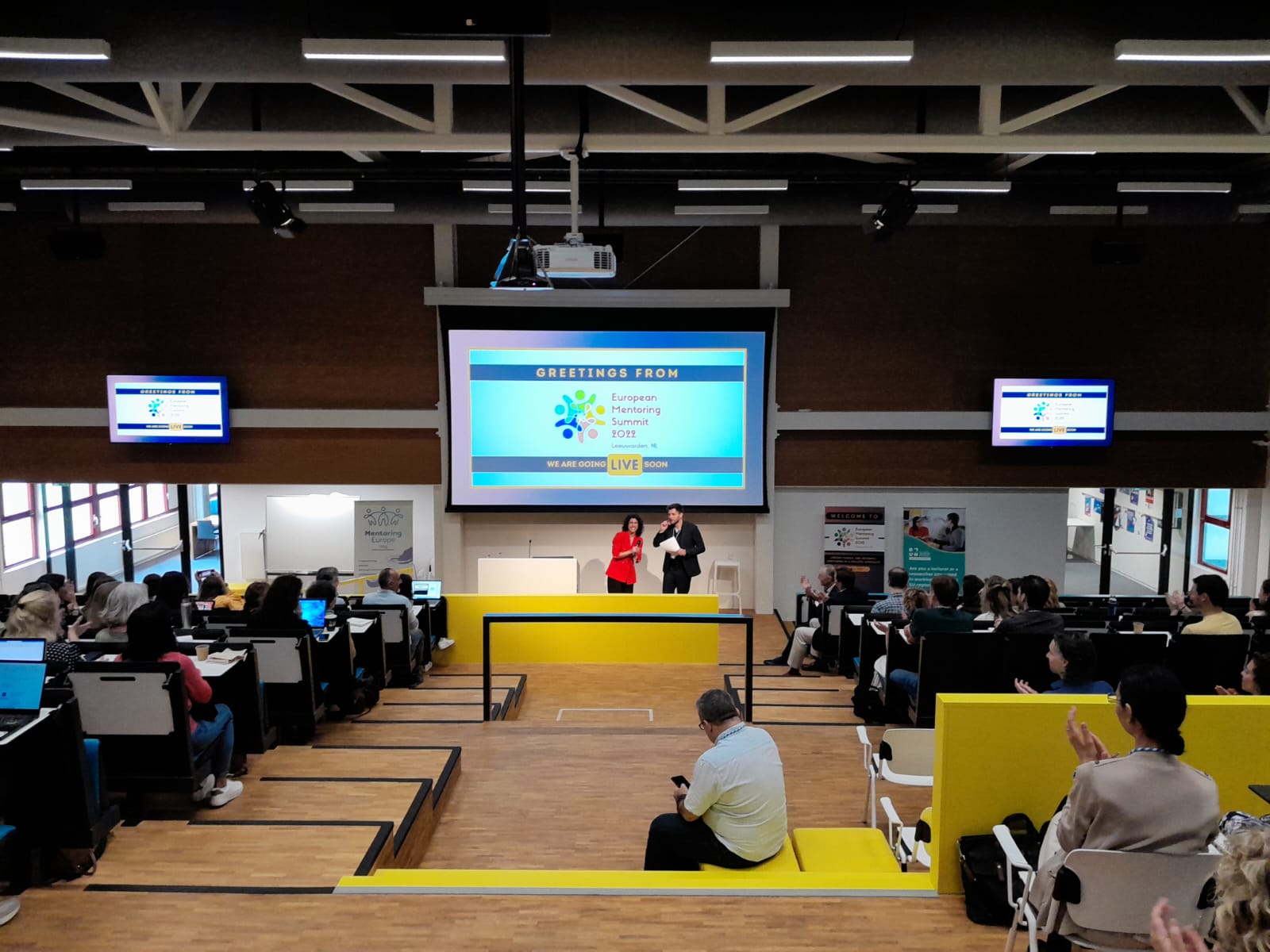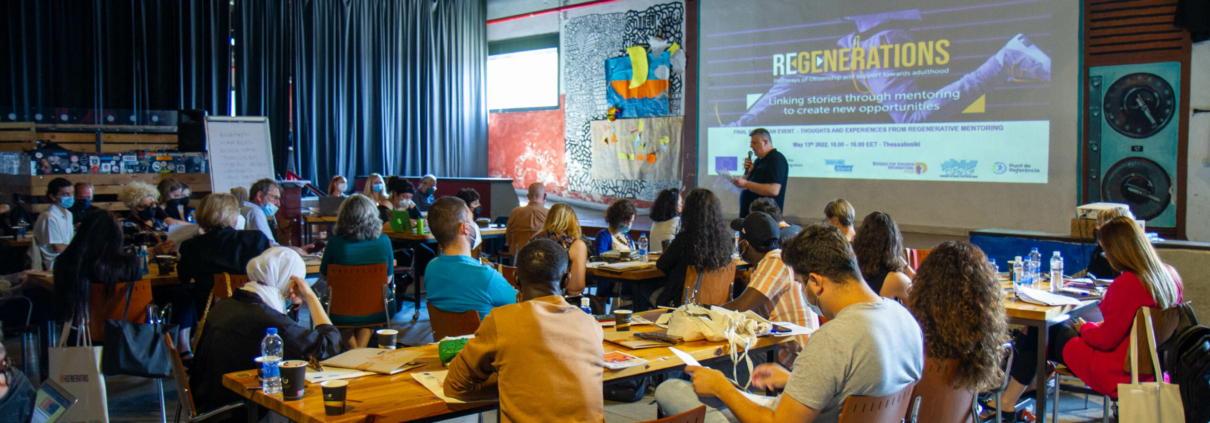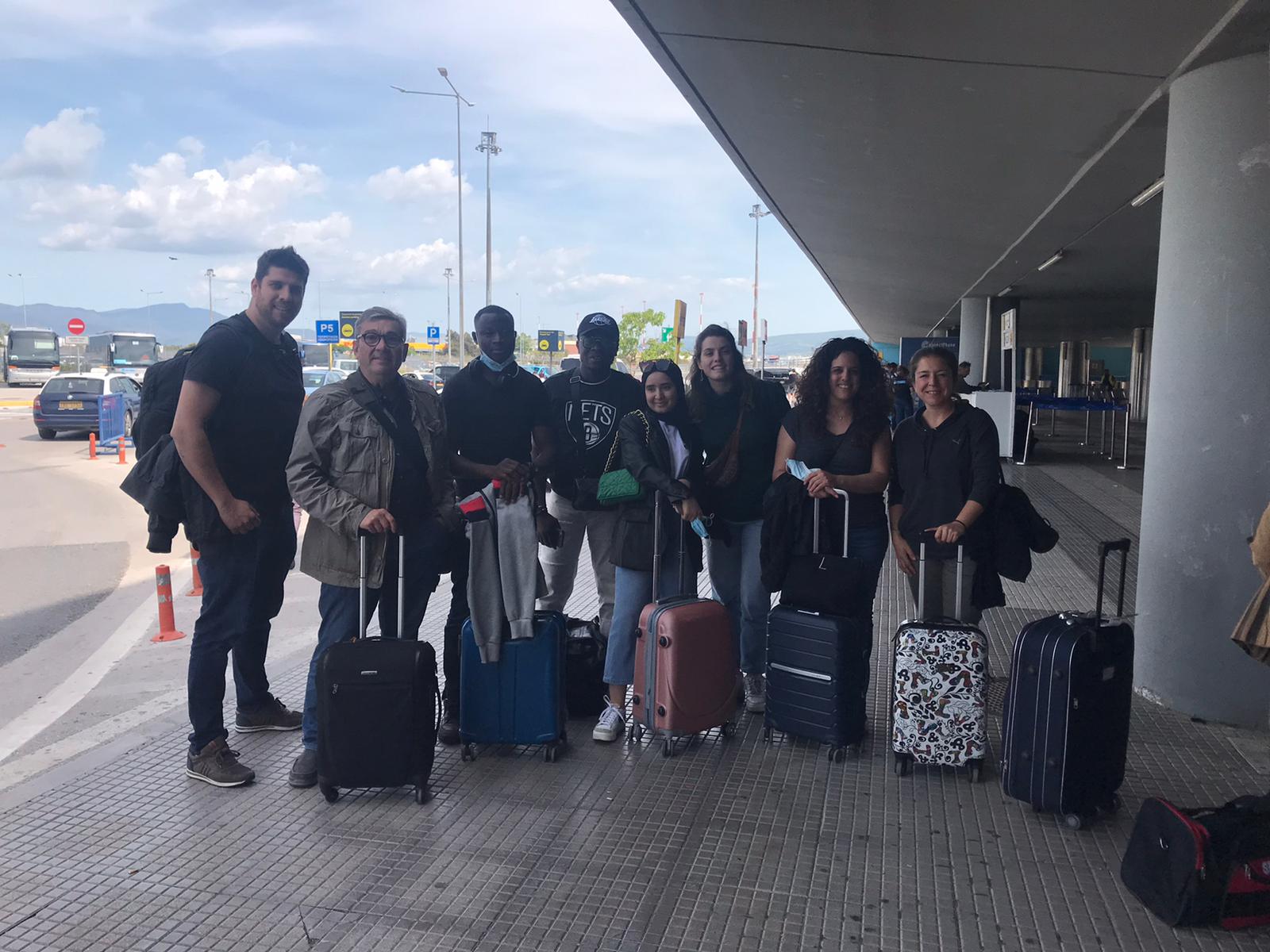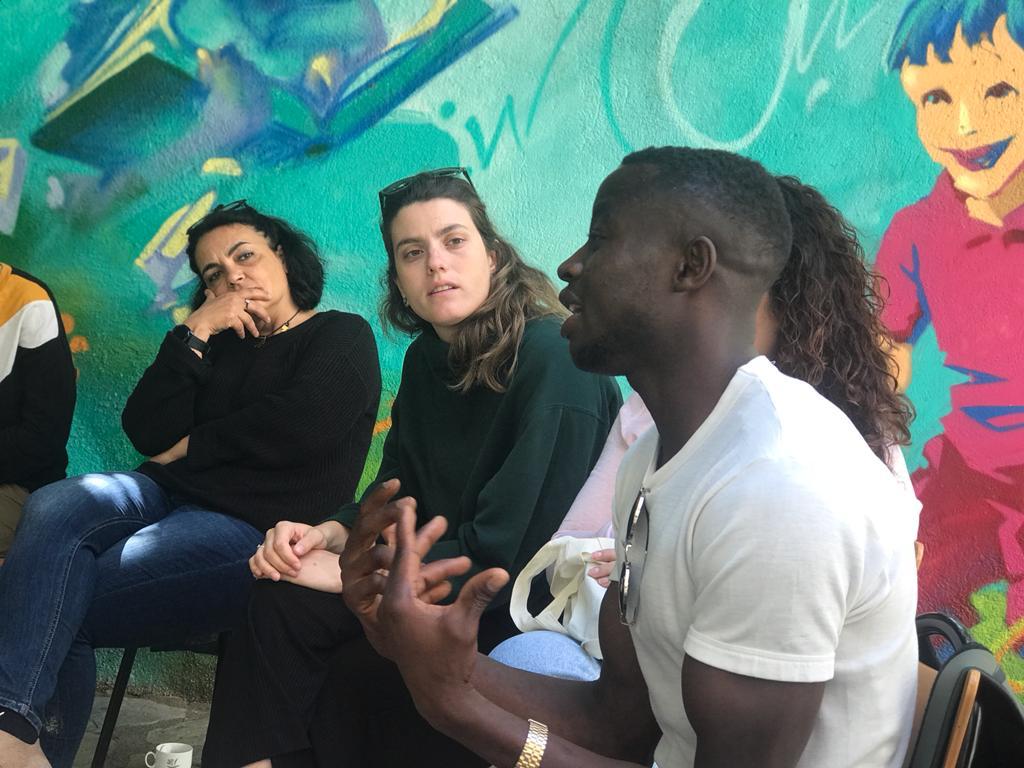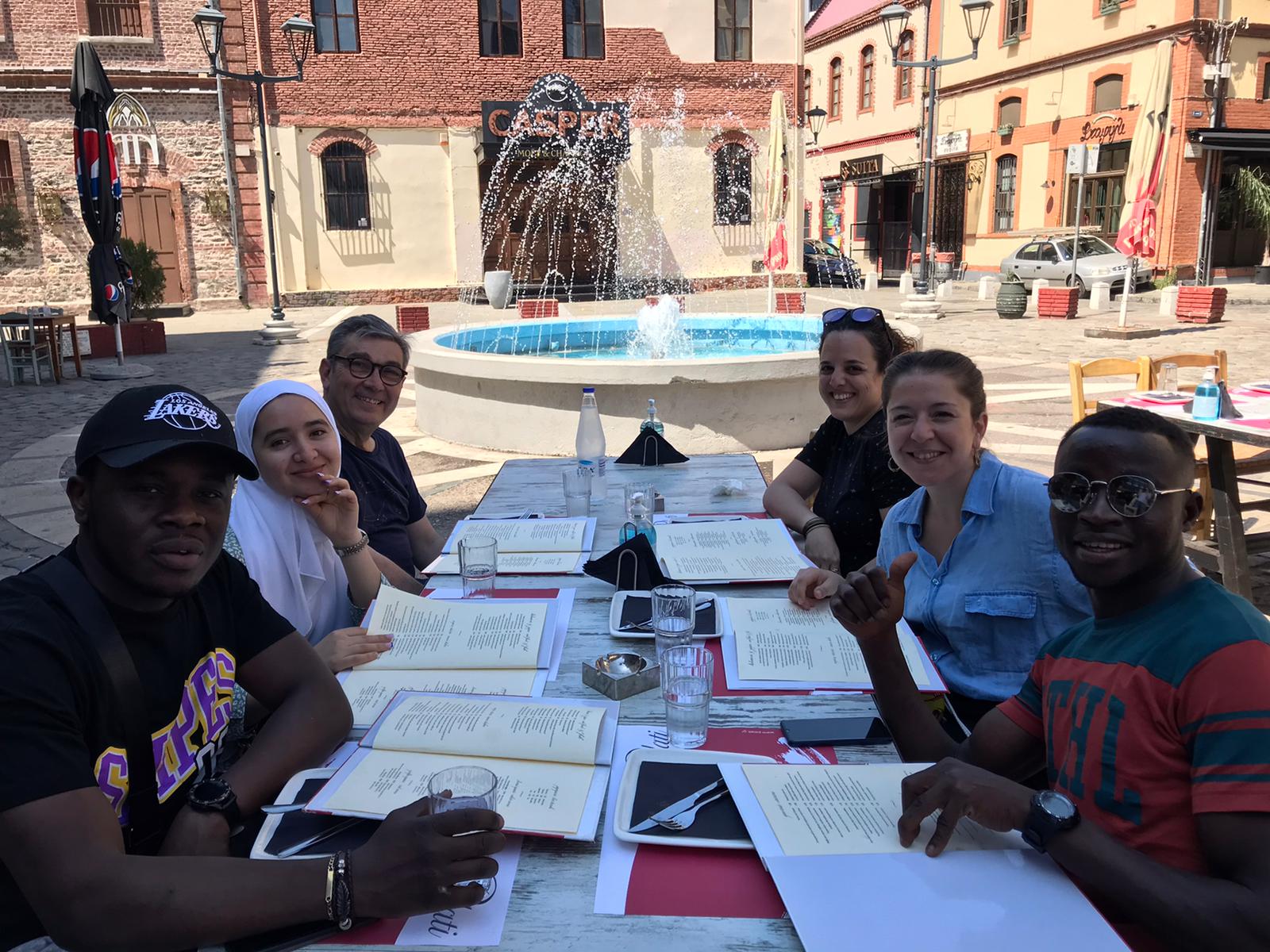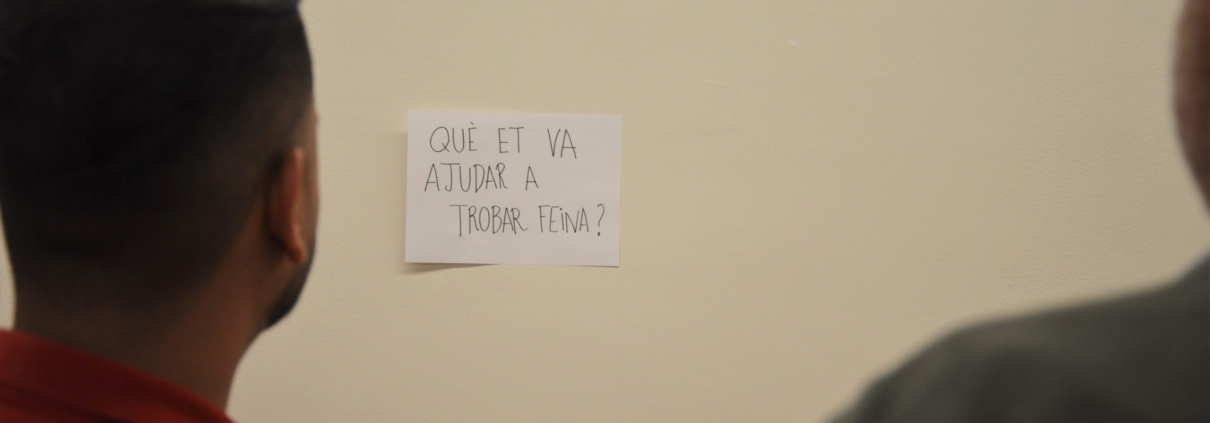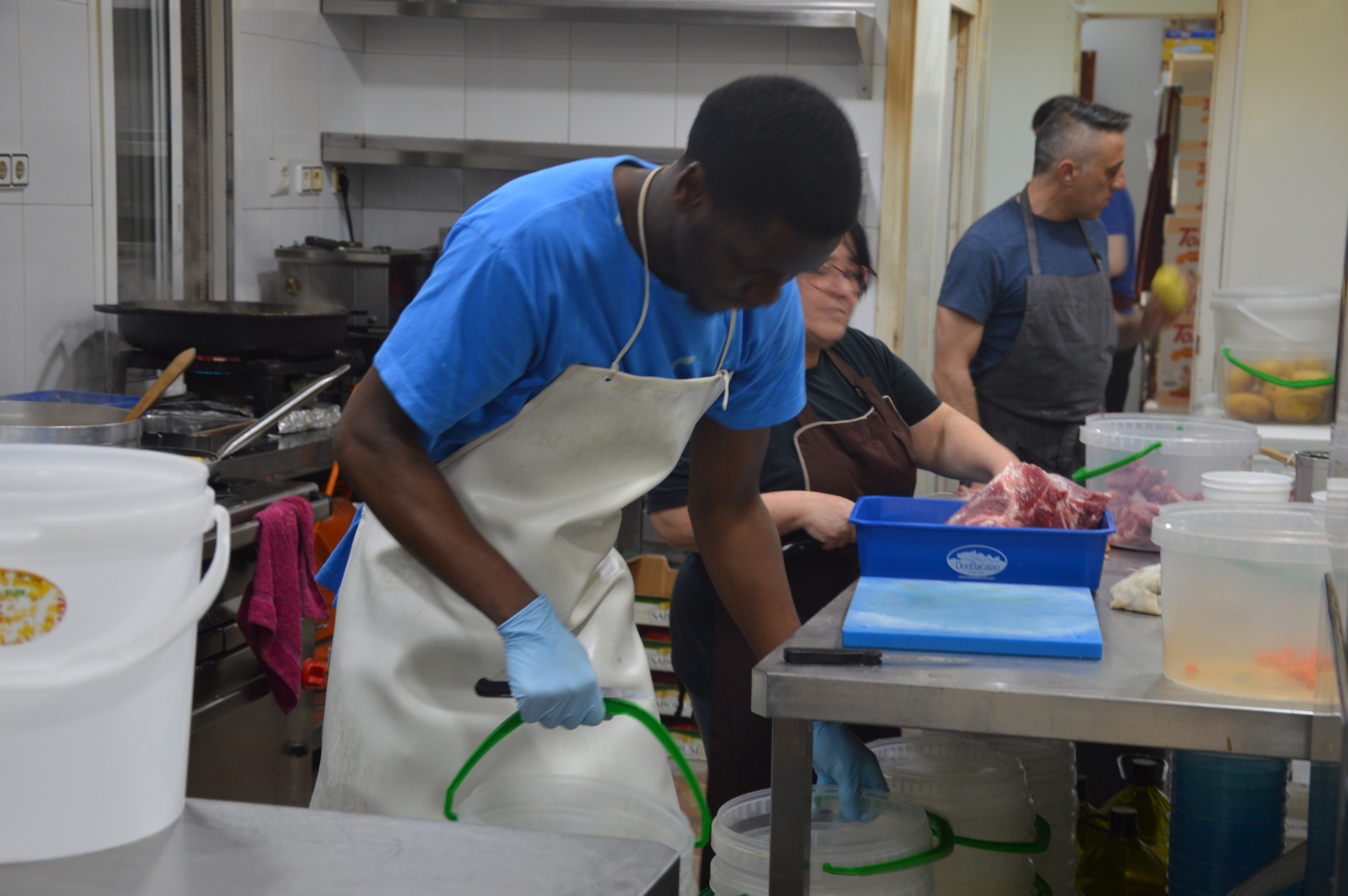Mentoring stories: meet Issiaga and Leticia
Issiaga and Leticia laughingly explain that they would have never met in their lives. That it was totally impossible for their paths to cross. This is the magic of the Referents project. That two people who would never coincide naturally end up establishing a bond of trust, a unique relationship that simmers, with time and dedication. They are one of the pairs of the Referents project.
In just 5 months, since they met, Issiaga has visited more museums than any youngster his age, and probably many of us. “We have gone to the Music Museum, the Picasso Museum, the Design Museum and the Ethnological and World Cultures (MUEC). Oh! and to the Torre Balldovina Museum in Santa Coloma de Gramenet. Leticia is a great museum seeker”, he explains laughing. “She proposes the visits, and we decide together.”
They have also walked. A lot. Kilometres and kilometres through Barcelona and the river park of Santa Coloma de Gramenet. Time to share. “Walking you get to know people rather well and we take the opportunity to talk,” says Leticia. “At first, I thought: we’ll see how it works… But now everything is easy. We have told one another many experiences, good and bad. And we have connected”.
The transformative energy of social mentoring
Leticia comments that, after the outbreak of the Ukrainian War, she thought about volunteering. The odds were that she would end up accompanying refugees from that country. But searching the Internet, she found Punt de Referència’s website and it seemed an interesting proposal. “I must admit – she argues – that I had never heard of social mentoring. But, since I have young kids, I have accompanied them in the transition from adolescence to youth, and you realize the role you can play”. She asked people from the sector if Punt de Referència was a serious organisation: “And they all gave me very good references,” she explains. And it really is so because you are great professionals. You do a great job, and in a very professional way”.
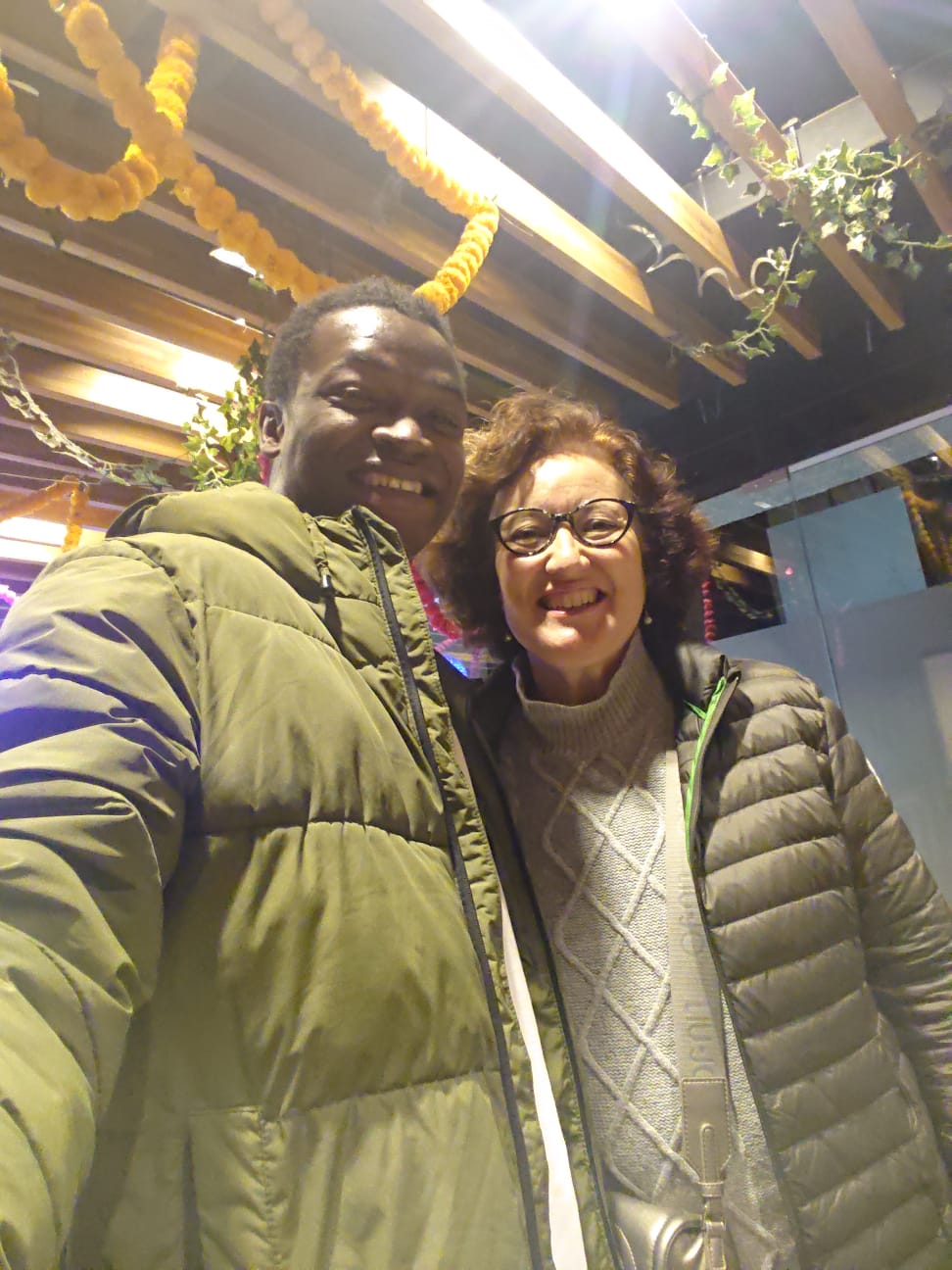 The power of smile
The power of smile
Together they relive the day they met. “I went to Punt de Referència’s office, because Marina, the educator of Referents project, called and asked me to come and meet my mentor”, recalls Issiaga. “They left us alone in a room. The way I communicate with people is important to me and I always believe that with a smile I do rather well. I met her and I thought she was a good person and that I could continue with her. It is also true that many thoughts came to my mind: what will I do with her? For her part, Leticia, became “excited, but also with the uncertainty of how everything would go. I don’t know what I can contribute, I thought. If I will know what to do… I called Marina to explain it to her”.
The figure of Marina Montoya is the third piece of this affective puzzle, the third vertex of the triangle that allows social mentoring to work. A triangle drawn between the mentor person, the youngster, and the person from the educational team. Marina acts as a hinge between Issiaga’s concerns and needs and Leticia’s. “The relationship established between the two is proof that the bond, trust, and the fact of recognizing the other has much power to transform realities. Affection, recognition, and trust are forceful tools for empowerment in the path towards the emancipation of all boys and girls”, explains Marina.
After more than 150 days supporting Issiaga, Leticia 100% recommends living the experience: “It’s worth it. It is rewarding and, at the same time, it enriches you as a person. You learn to look with different eyes and understand the migratory processes, getting closer to other realities. And I must also admit that emotionally it is very intense. Much more than I ever thought.”
A life of improvement
According to data from the General Directorate for Child and Adolescent Care, in Catalonia there are more than 7,700 children and young people in care. The dream of turning 18 and being of legal age means, for them, not being able to receive that support anymore and facing emancipation suddenly and, often, without having family close by, particularly, for young migrants like Issiaga.
He had a weak social network and no knowledge of the environment when he arrived here two years ago at the age of 17 from his home country, French Guinea. The life paths and origins of young people who migrate alone are diverse and complex. Issiaga’s is a story of self-improvement that is triggered by the death of his mother. “Before I studied, but now I am working. When I can, my goal is to obtain a Higher-Grade Cycle. Leticia encourages me to continue working and studying”, he says without losing his eternal smile.
“Issiaga’s life has been very complicated if I compare it with that of my children,” Leticia reflects, “who have plenty amenities, and everything is easier for them. That has made me think that, sometimes, we do not value what we have. Fortunately, I see that, faced with a difficult situation, Issiaga knows how to get ahead. He’s brave, if he wasn’t, he wouldn’t be here. He is a strong person, eager to learn and with clear priorities, because he asks me questions, but he is always clear about the priorities”.
Issiaga listens attentively without losing his smile. “I have started to change, and I will continue to do so. I want to live here because this is where I will study”. He is very clear about it: “I will only leave the country to do tourism and see new places like the day I walked through the River Park with Leticia and saw the limits of Barcelona, the sea, and the green color of the forest. I loved it!”.
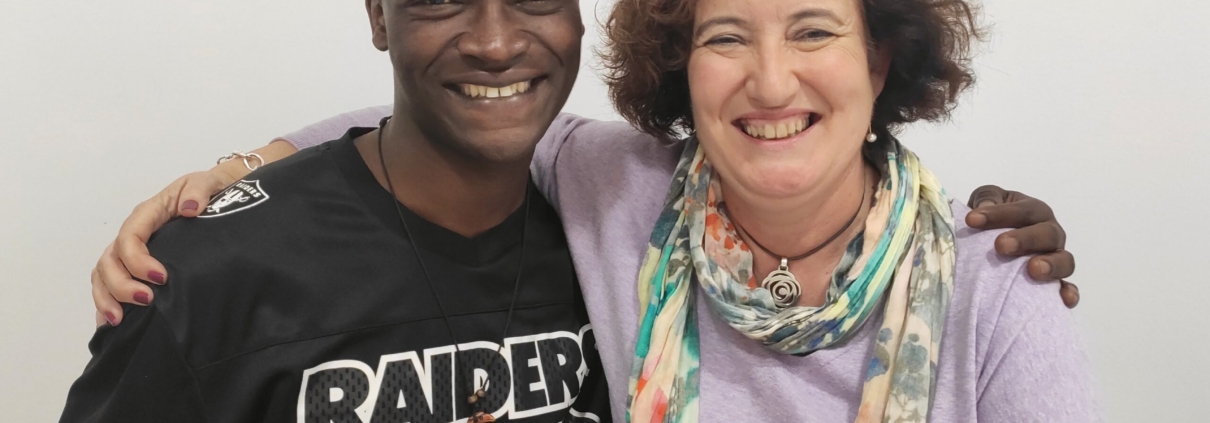
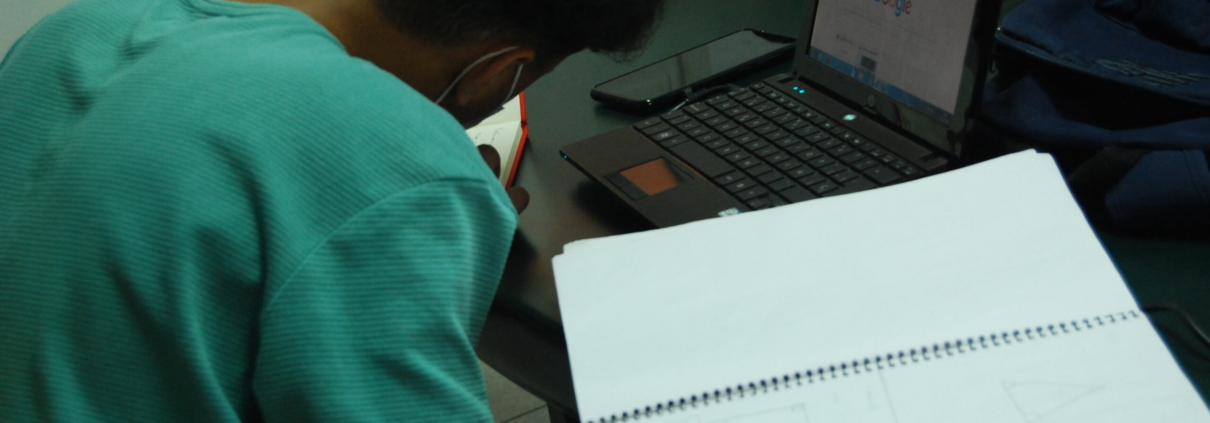
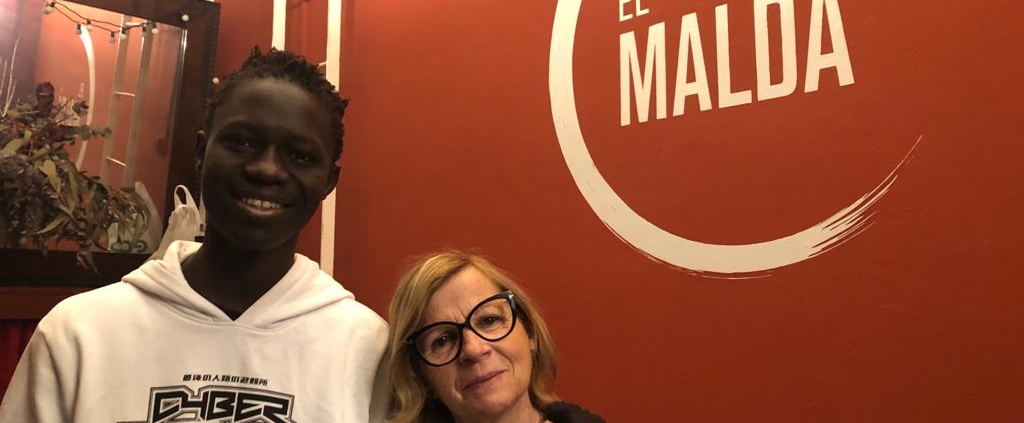
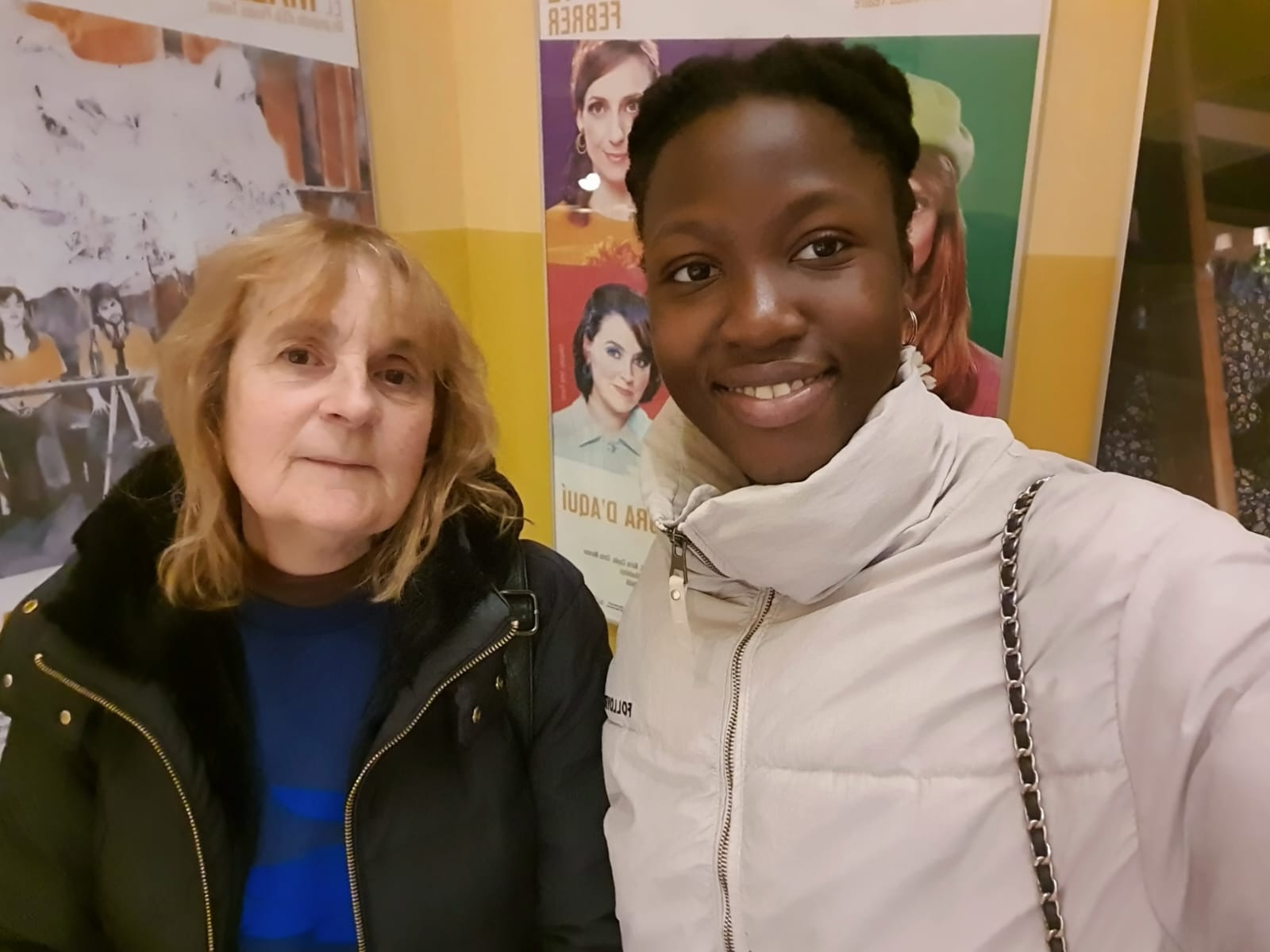
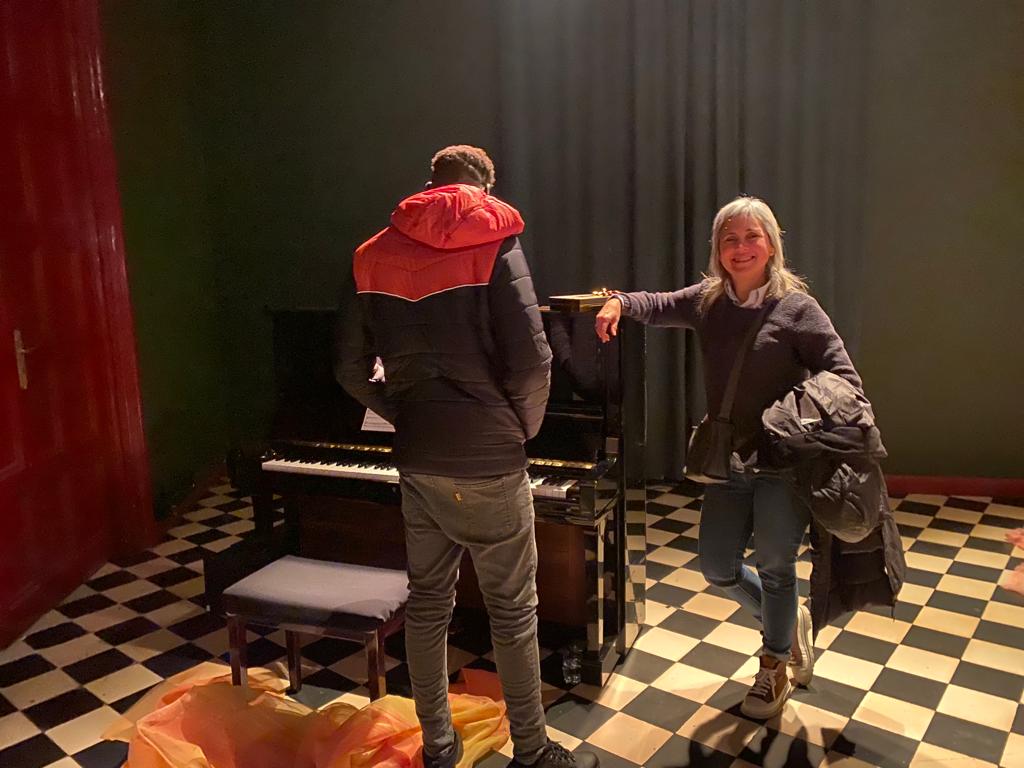
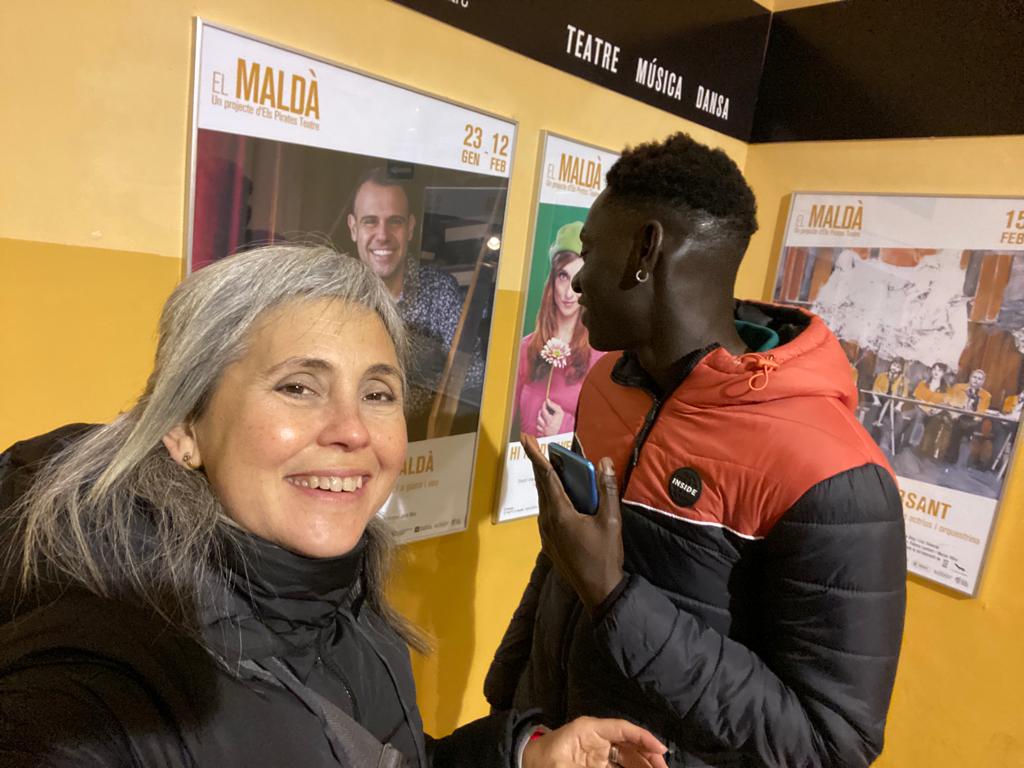
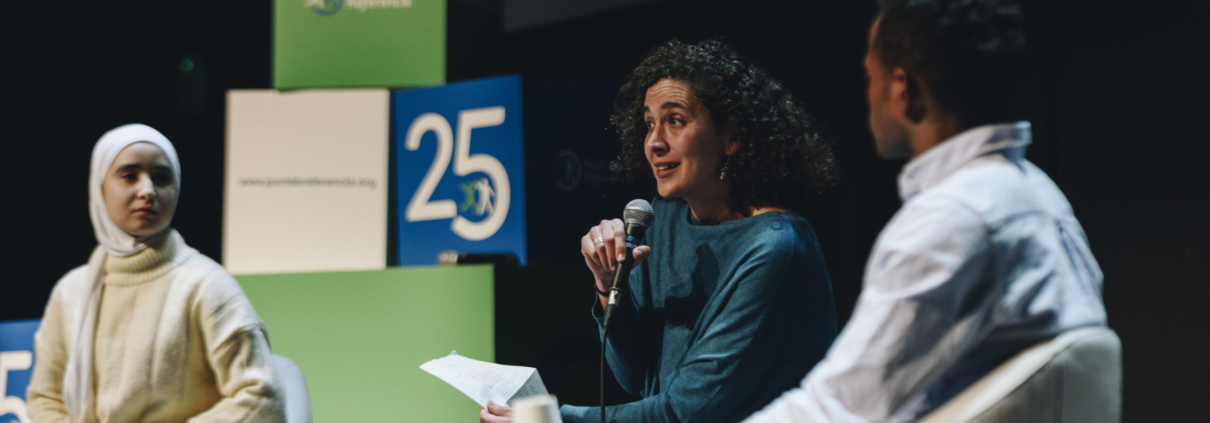
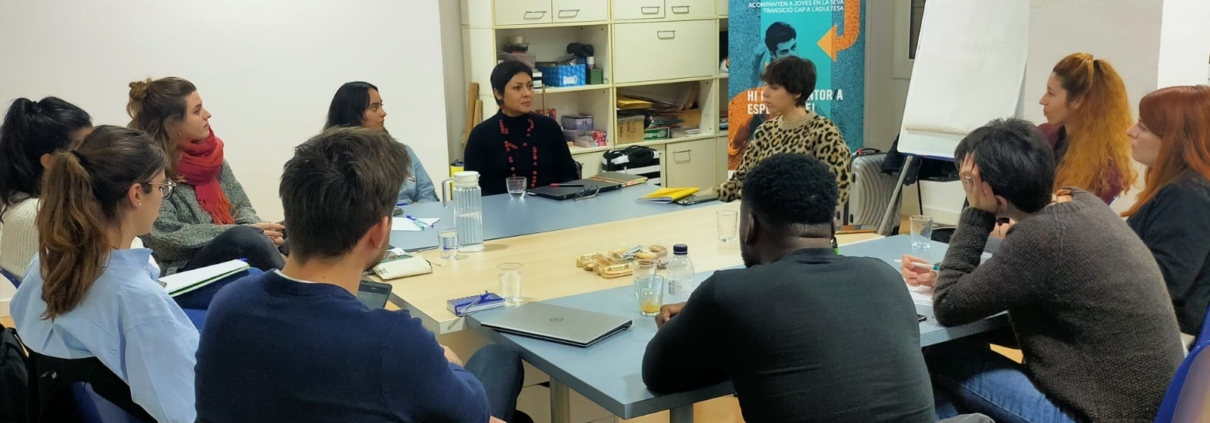
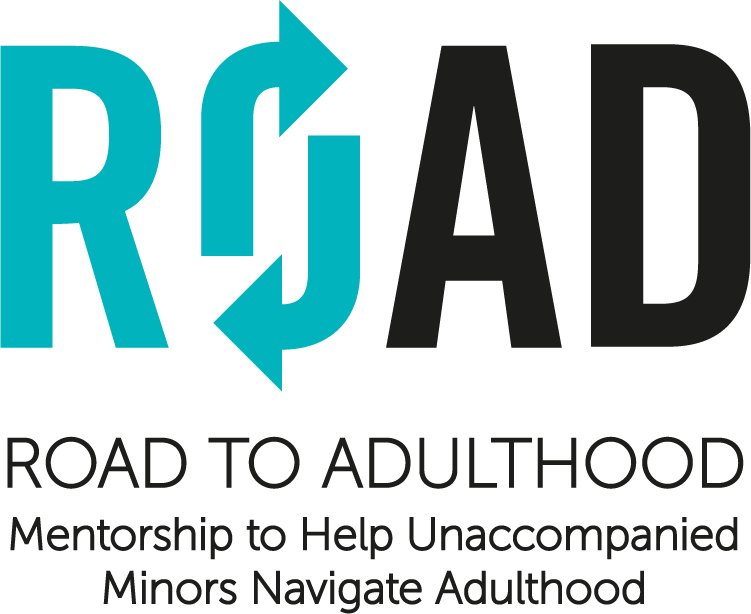 The RoAD project, which started in February 2022 and is financed by the European Union, is carried out in different European countries through different entities that implement social mentoring inspired by Punt de Referència’s model: ARSIS in Greece, Defence for Children International in Italy, and Mentoring Europe in the Netherlands (an association more specialized in the training of mentoring professionals).
The RoAD project, which started in February 2022 and is financed by the European Union, is carried out in different European countries through different entities that implement social mentoring inspired by Punt de Referència’s model: ARSIS in Greece, Defence for Children International in Italy, and Mentoring Europe in the Netherlands (an association more specialized in the training of mentoring professionals).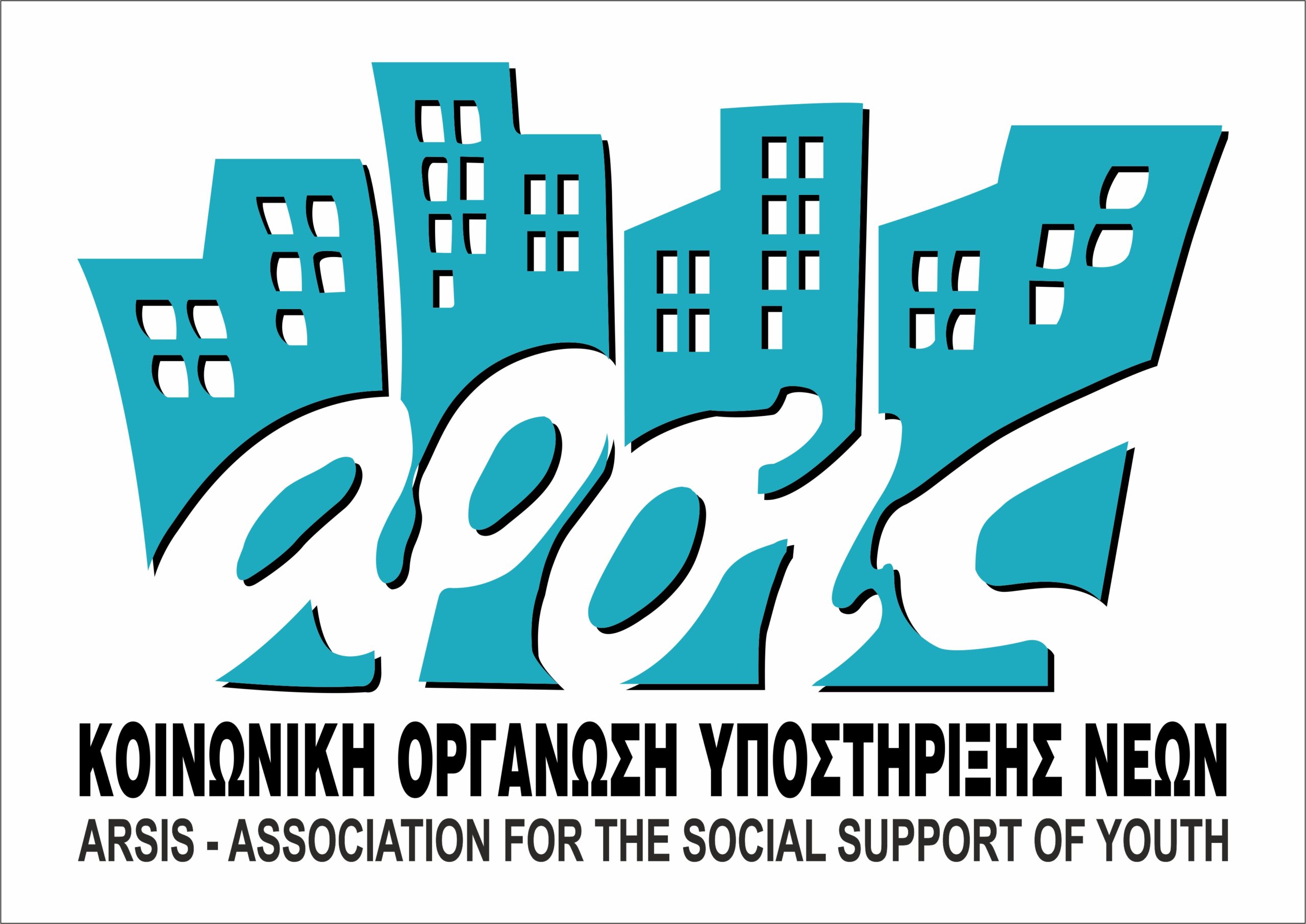 ARSIS. GREECE
ARSIS. GREECE  DEFENCE FOR CHILDREN INTERNATIONAL. ITALY
DEFENCE FOR CHILDREN INTERNATIONAL. ITALY  MENTORING EUROPE. THE NETHERLANDS
MENTORING EUROPE. THE NETHERLANDS 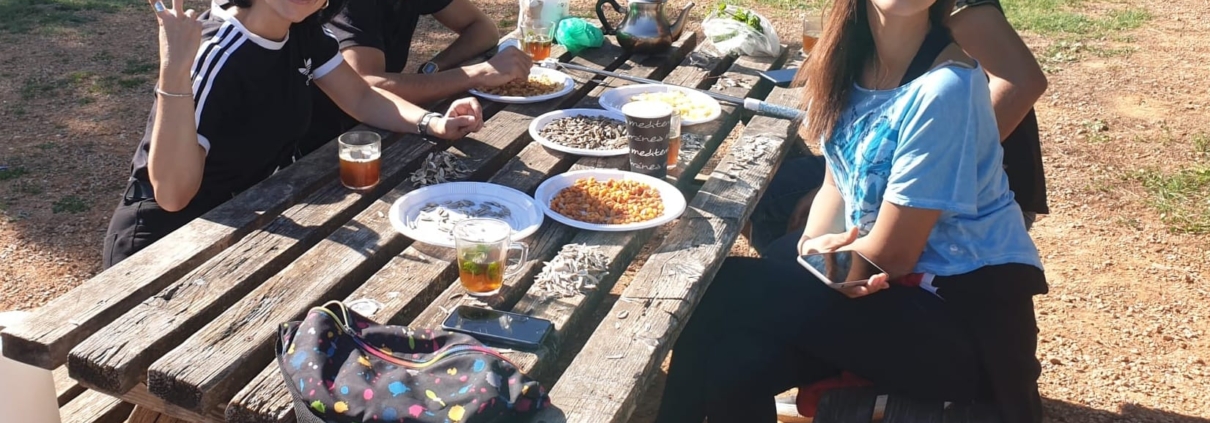
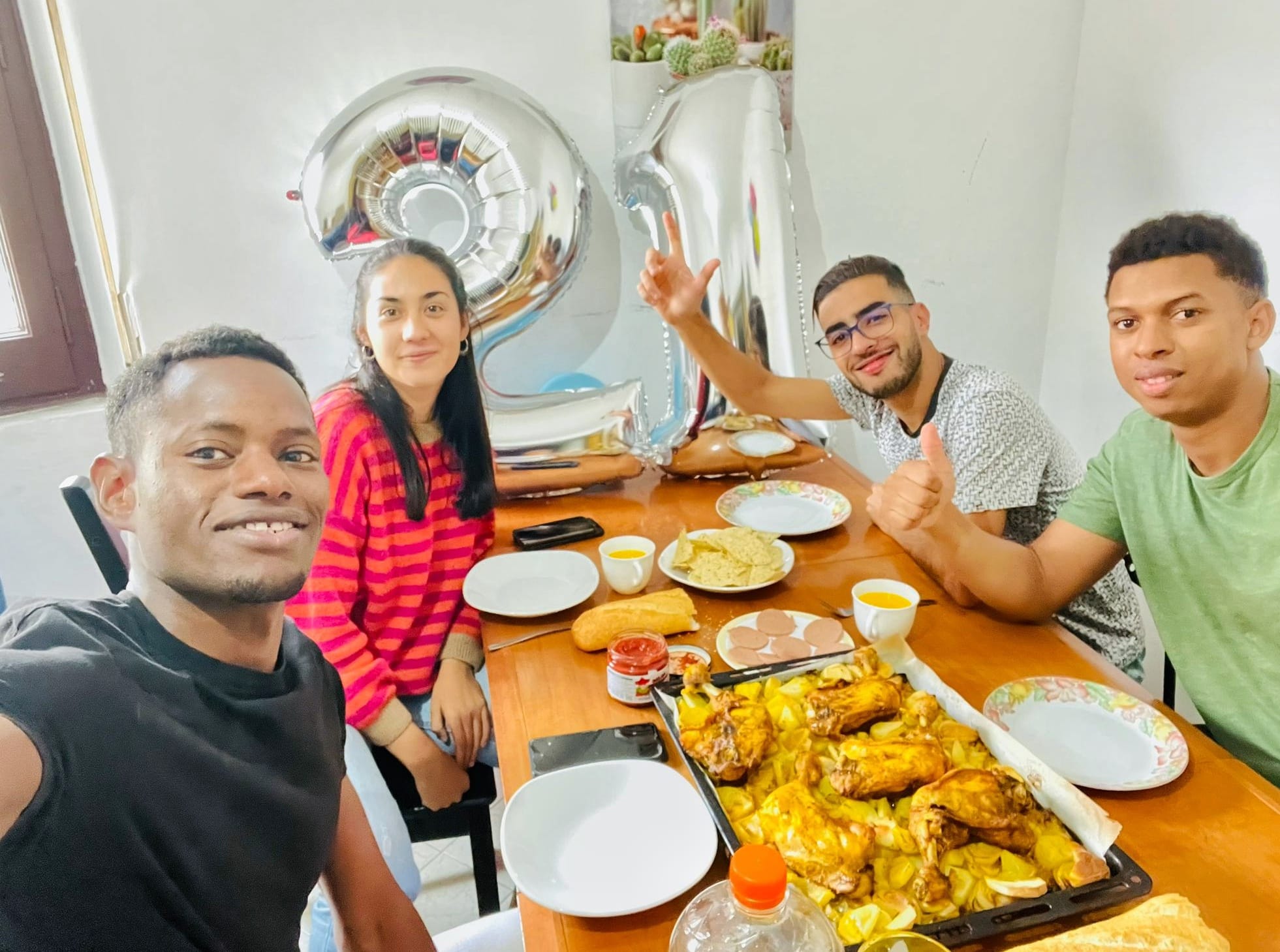 an assisted flat does not only mean living in a stable and welcoming space, above all it means being and feeling accompanied. It equates to having time for active listening and sharing. It means having an intimate and trusted space that an office does not offer. In a home it is easier to establish bonds. Additionally, emotional support promotes the development of emotional skills and good self-esteem, aspects that contribute to good mental health in young people.
an assisted flat does not only mean living in a stable and welcoming space, above all it means being and feeling accompanied. It equates to having time for active listening and sharing. It means having an intimate and trusted space that an office does not offer. In a home it is easier to establish bonds. Additionally, emotional support promotes the development of emotional skills and good self-esteem, aspects that contribute to good mental health in young people.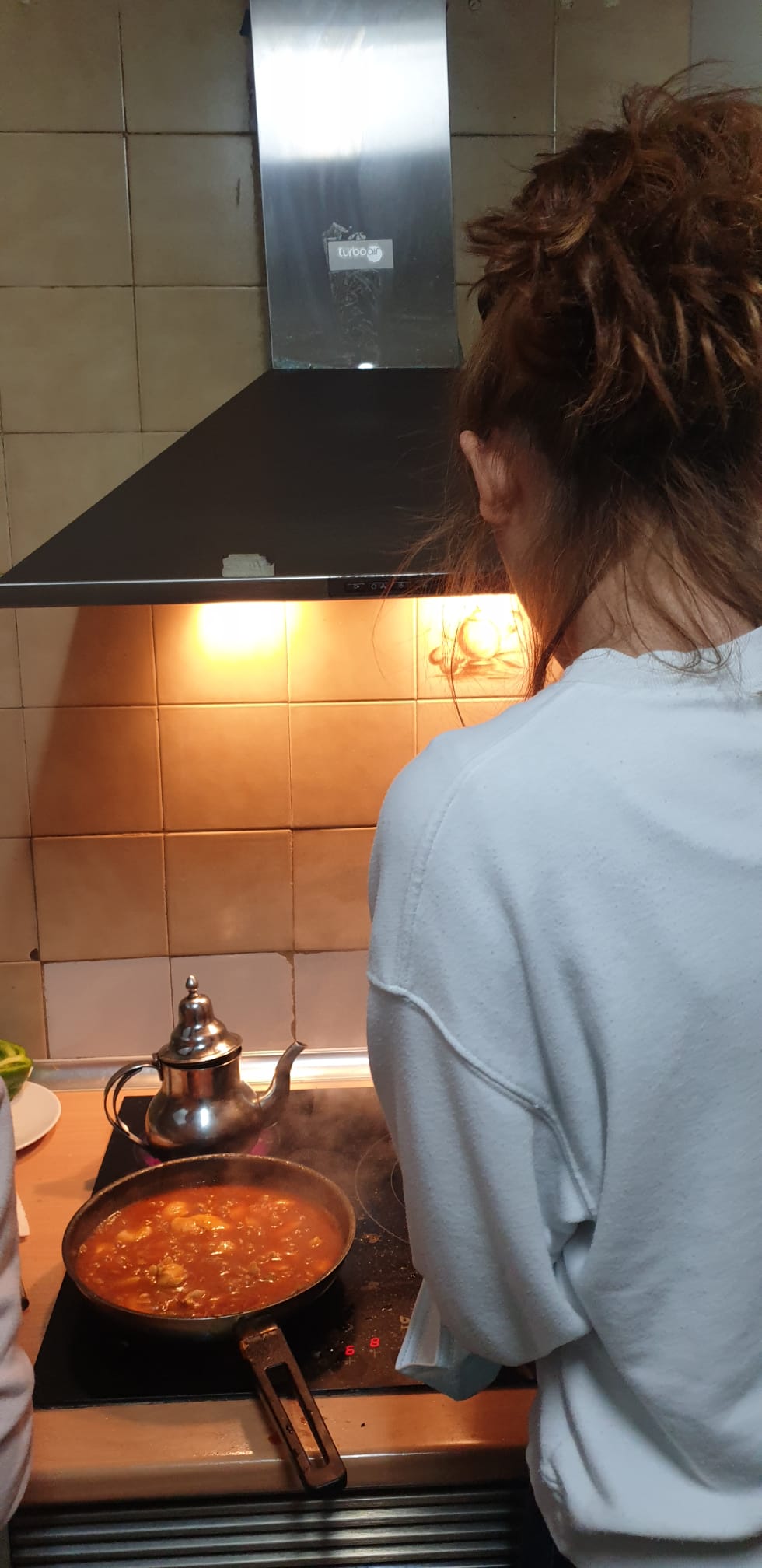
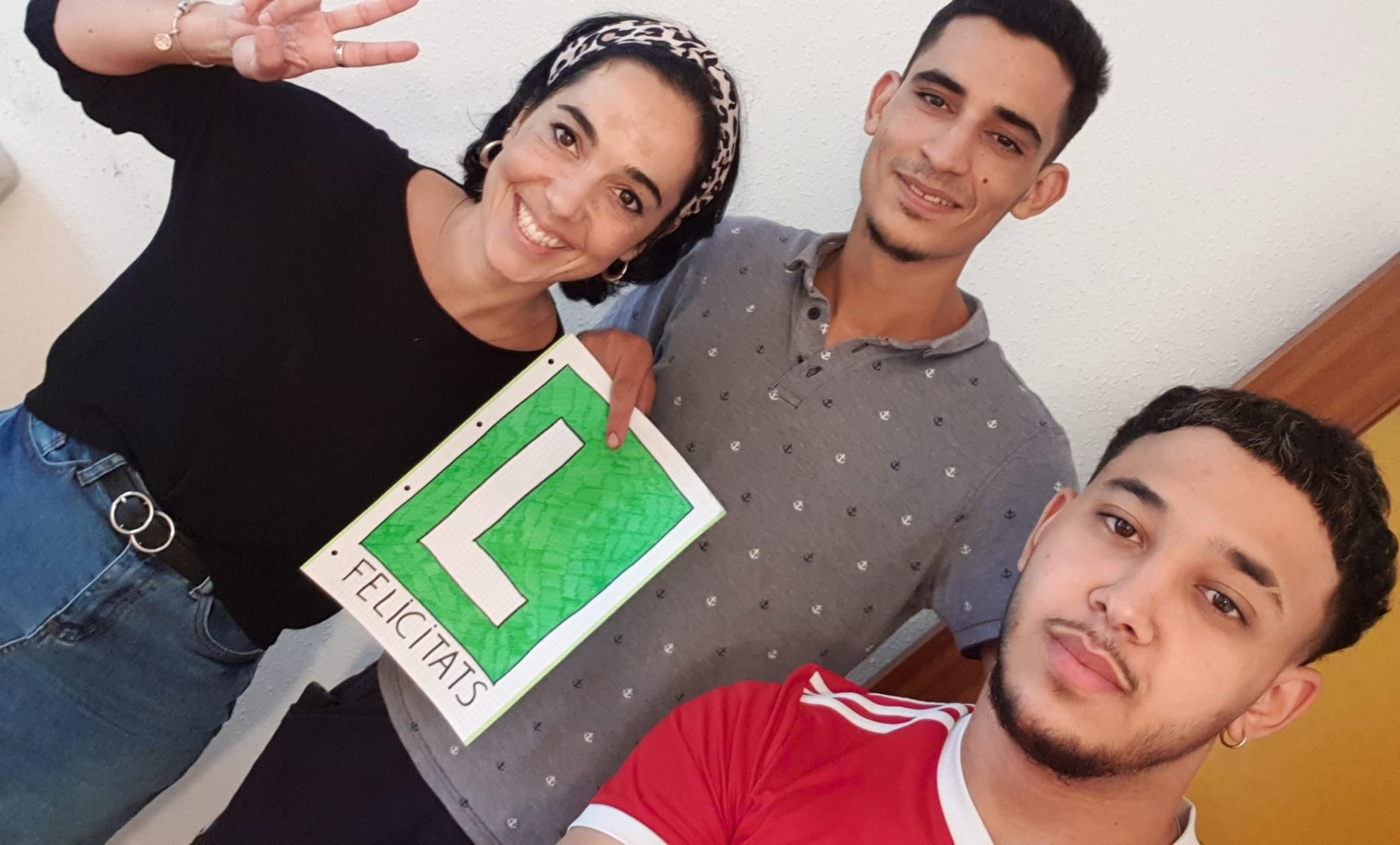
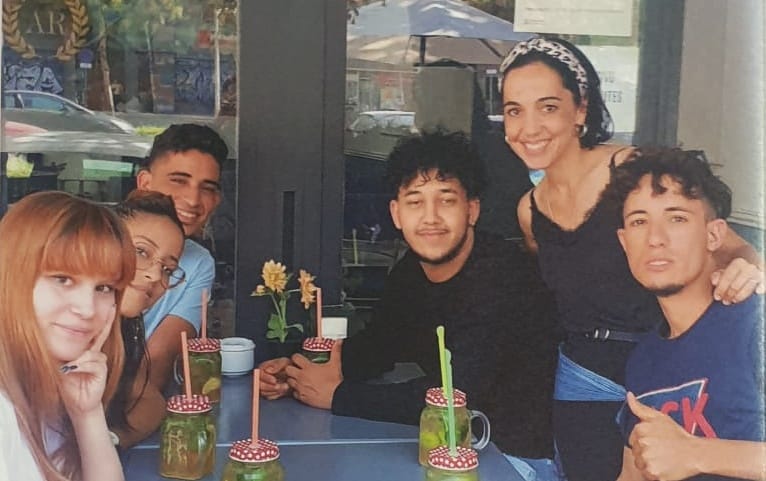
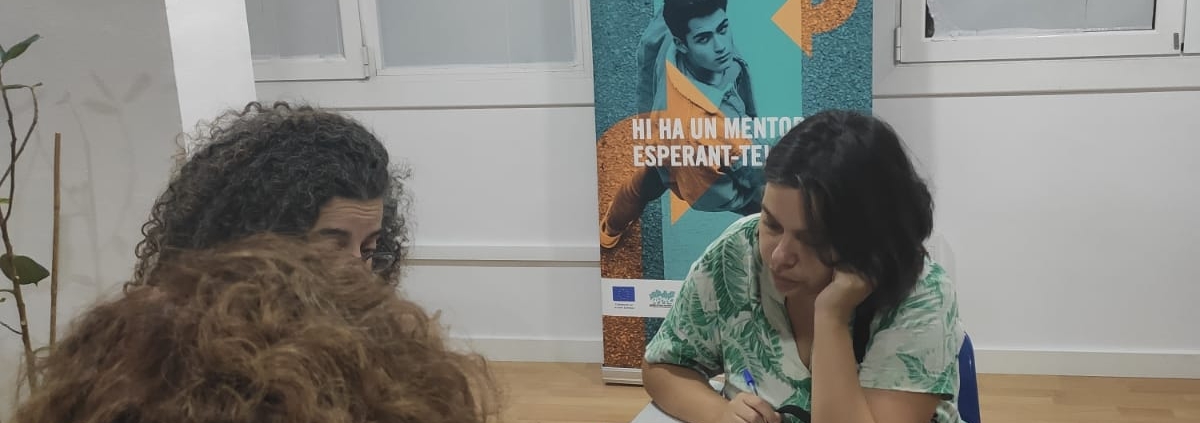
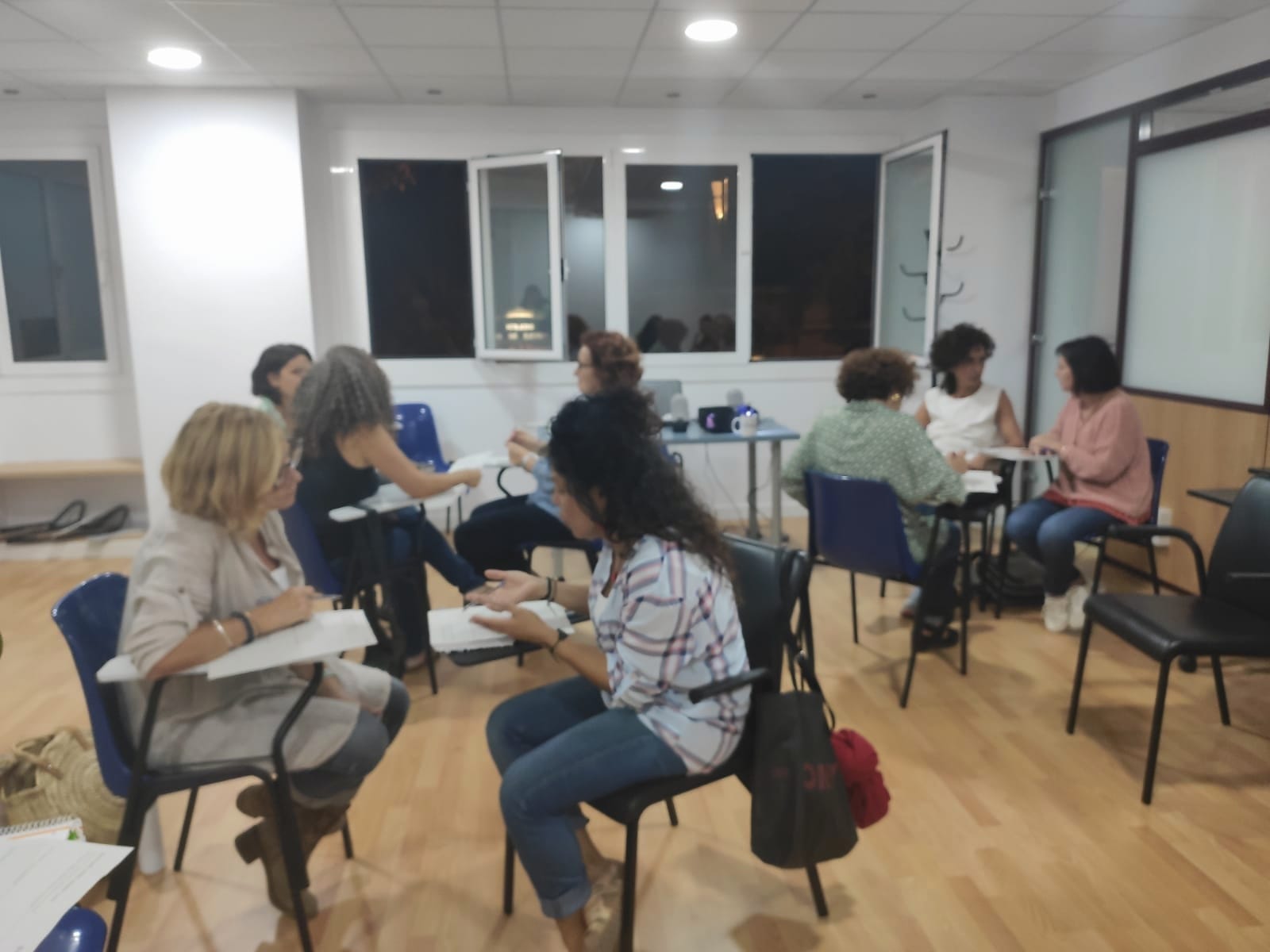 Mireia: “It has allowed me to discover other realities and other ways of relating to them, from respect and listening”.
Mireia: “It has allowed me to discover other realities and other ways of relating to them, from respect and listening”.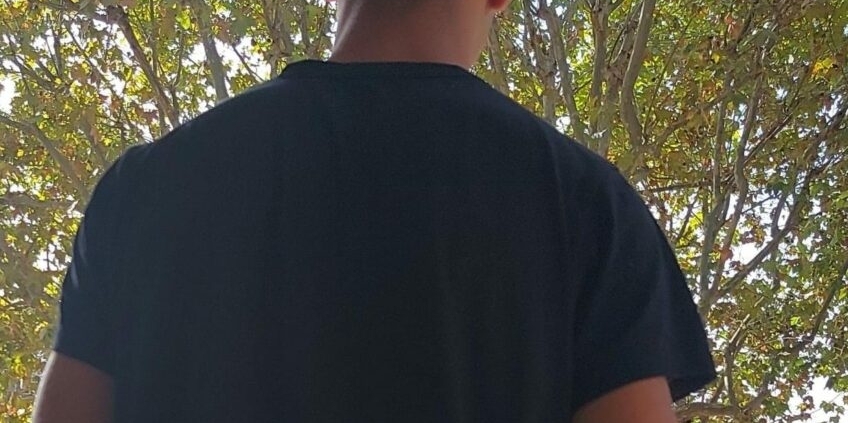
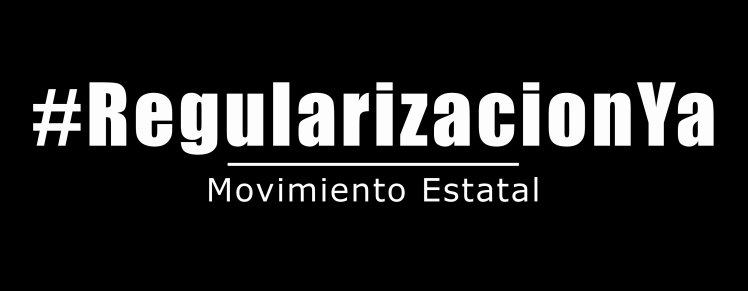 This year, a new reform of the Immigration Law regulations intends to facilitate regularization again, with some features. In mid-September, SOS Racismo assessed this reform, remarking that the regulation reforms “serve to develop practical questions for the application of laws”, but in no case “can we expect major substantial changes from a reform”. The processes that will benefit from the changes are specific to the granting of visas and settlement by social, work and family reasons. Despite everything, civil society and communities of migrants and racialized persons have organized themselves again, to demand the Government a massive regularization of people, through the campaign
This year, a new reform of the Immigration Law regulations intends to facilitate regularization again, with some features. In mid-September, SOS Racismo assessed this reform, remarking that the regulation reforms “serve to develop practical questions for the application of laws”, but in no case “can we expect major substantial changes from a reform”. The processes that will benefit from the changes are specific to the granting of visas and settlement by social, work and family reasons. Despite everything, civil society and communities of migrants and racialized persons have organized themselves again, to demand the Government a massive regularization of people, through the campaign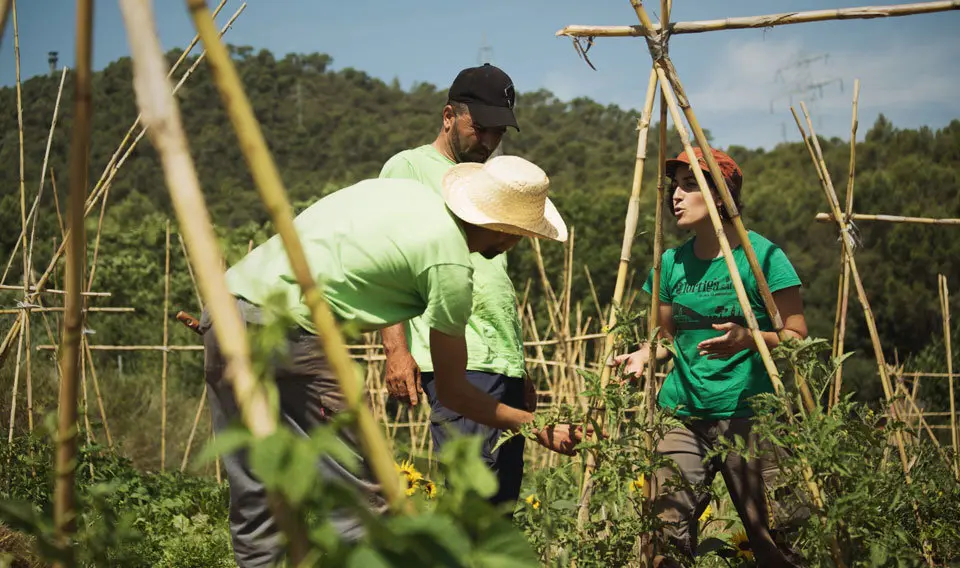 Aixa Dulcey, educator from Punt de Referència who accompanies and knows J., explains what he is like: “I have been accompanying him since April. I remember the first day, when I made an appointment to meet him. He arrived sharp on time and ever so during all these months of accompaniment. He is a responsible, educated, sensitive and very grateful young man. He receives training in ‘L’Ortiga’ agricultural project, and, during the harvest months, he came to Punt de Referència with vegetables from the garden to share with us; I thought it was a very endearing gesture that defines him. He is emotionally reserved, always remains optimistic, and with a smile he tells some of the phrases that Kike, his mentor, tells him when they meet and from which he always learns something”. However, the other side of the coin that I would like to point out -says Aixa- is the deep emotional impact that this situation causes him: “Finding himself in an irregular administrative situation has caused him a lot of anguish, because he is not sure when he will be able to work and meet his family again. But what I would highlight most about this brave young man is his resilience and his compassionate look, despite having lived through unfair and inhuman situations, which no one should have to suffer”. Because, despite everything, J. assures that now he is happy, “when I arrived here, the fact of not knowing anyone affected me a lot, I felt very lonely. Now, not anymore, now I have an environment, I am happy and in high spirits, I meet people and they accompany me”.
Aixa Dulcey, educator from Punt de Referència who accompanies and knows J., explains what he is like: “I have been accompanying him since April. I remember the first day, when I made an appointment to meet him. He arrived sharp on time and ever so during all these months of accompaniment. He is a responsible, educated, sensitive and very grateful young man. He receives training in ‘L’Ortiga’ agricultural project, and, during the harvest months, he came to Punt de Referència with vegetables from the garden to share with us; I thought it was a very endearing gesture that defines him. He is emotionally reserved, always remains optimistic, and with a smile he tells some of the phrases that Kike, his mentor, tells him when they meet and from which he always learns something”. However, the other side of the coin that I would like to point out -says Aixa- is the deep emotional impact that this situation causes him: “Finding himself in an irregular administrative situation has caused him a lot of anguish, because he is not sure when he will be able to work and meet his family again. But what I would highlight most about this brave young man is his resilience and his compassionate look, despite having lived through unfair and inhuman situations, which no one should have to suffer”. Because, despite everything, J. assures that now he is happy, “when I arrived here, the fact of not knowing anyone affected me a lot, I felt very lonely. Now, not anymore, now I have an environment, I am happy and in high spirits, I meet people and they accompany me”.
